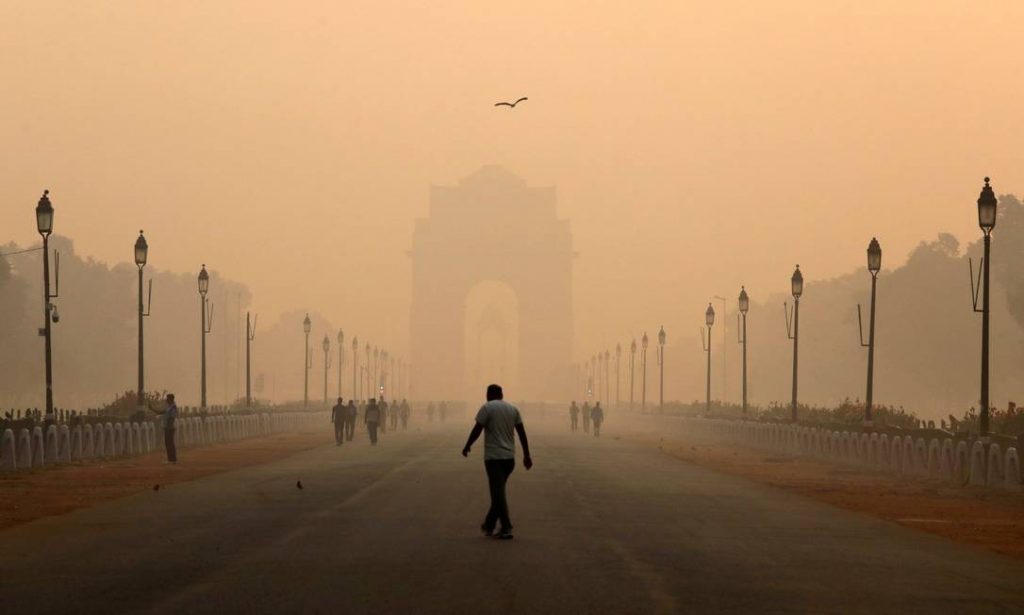New Delhi: National capital’s air quality remained in the severe category for the third consecutive day Thursday as calm winds and low ventilation halted the dispersion of accumulated pollutants.
Delhi’s air quality index stood at 425 micrograms per cubic meter in severe category at noon. Wednesday, the air quality index was 433 micrograms per cubic meter and 418 micrograms per cubic meter the previous day.
According to the Central Pollution Control Board (CPCB), 28 out of 36 pollution monitoring stations in Delhi showed severe air quality index reading. Nehru Nagar, Anand Vihar, Jawaharlal Nehru Stadium and R.K. Puram areas of the national capital have the most noxious air, inching towards emergency levels.
The System of Air Quality and Weather Forecasting and Research (SAFAR), which comes under the aegis of the Ministry of Earth Sciences said the calm wind, cold conditions and low ventilation has halted the dispersion of the accumulated pollutants.
“Surface-level winds are calm and forecasted to pick up and AQI is likely to improve during the day. Better ventilation condition is forecasted for the next two days. Hence, AQI is forecasted to improve to the higher end of the very poor category by 25th December,” the weather forecasting agency said.
Delhi’s neighbouring regions — Ghaziabad, Faridabad, Noida and Greater Noida recorded ‘severe’ quality of air, leaving aside Gurugram which has slightly better AQI at 375 micrograms per cubic meter. Greater Noida and Noida have the most polluted air amongst all at 455 and 447 micrograms per cubic meter.
Nationwide, as many as 12 cities have very poor air quality. Uttar Pradesh’s Greater Noida and Noida top the charts, followed by Faridabad and Delhi. Aizawl city of Mizoram recorded the cleanest air in the country at 27 micrograms per cubic meter.
SAFAR has issued a stringent warning, asking everyone to avoid physical activity outdoors and consult a doctor if they experience unusual coughing, chest discomfort, wheezing, breathing difficulty, or fatigue and wear masks known as N-95 or P-100 respirators.
IANS
